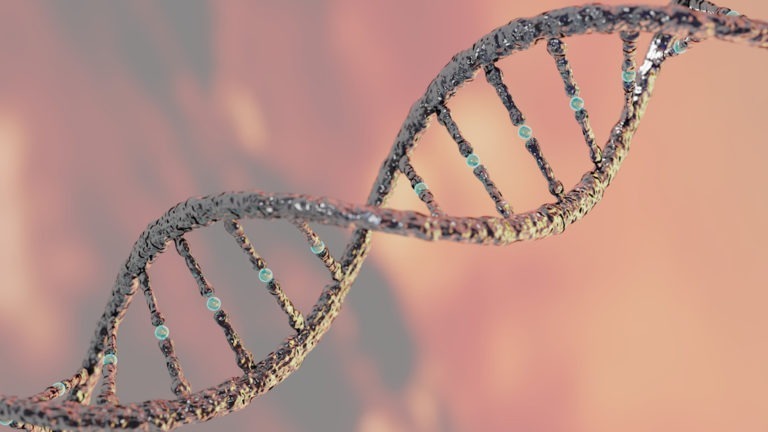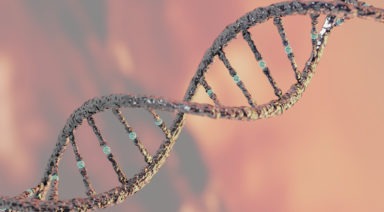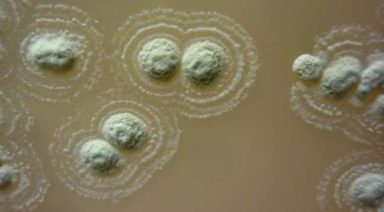Study Shows That Fasting for 3 Days Can Reset The Immune System

Want to kick that cold or boost your immune system so you don’t even catch that cold in the first place? Forget the copious amounts of Vitamin C or drastic lifestyle changes; it turns out the old adage of starving a cold may actually be scientifically sound advice. That’s according to a study that says two to four days of fasting resets immune systems, benefitting everyone from healthy adults to chemotherapy patients.
How Fasting Helps the Immune System
According to a study in Cell, testing in both mice and humans showed that extended periods of fasting lowered white blood cell counts considerably. This produces a change of the signaling pathways of HSCs or hematopoietic stem cells, which give rise to new blood and immune systems.
One of the study’s authors, Vlater Longo said, “When you starve, the system tries to save energy, and one of the things it can do to save energy is to recycle a lot of the immune cells that are not needed, especially those that may be damaged.”
This can be especially beneficial for the elderly and those with autoimmune disorders who are more susceptible to disease and illness. Another find from the study showed that fasting lowers levels of a growth hormone known as IGF-1, which is linked to cancer, aging and tumor growth.
Scientists are also seeing the benefits of fasting in other areas of health, especially in the field of neuroscience. In one study, they found that fasting twice a week can reduce the risk of Alzheimer’s and Parkinson’s disease. It also found that fasting can challenge the brain in the short term and stimulate two messaging chemicals that are key to the growth of new brain cells. This helps the brain become resistant to protein plaques that lead to neurodegenerative diseases.
A number of Silicon Valley execs are experimenting with fasting as a biohacking technique. Some of these biohackers abstain from food consumption for up to four days, while only drinking water, coffee or tea. CEOs, like Phil Libin, say it puts him in a better mood, keeps him more focused, and even provides a mild euphoria.
The science behind this is similar to the concepts of ketogenic diets where the body, when starved of carbohydrates and glucose, goes into ketosis, producing ketones from the breakdown of fat in the liver. The body uses these ketones in place of glucose, while burning fat to create said ketones.
Benefits of Fasting for Chemotherapy Patients
In a previous study, Longo and his team found that fasting in animals effectively treats a majority of cancer types. He also found that fasting in addition to chemotherapy is much more effective than chemotherapy alone.
For cancer patients, chemotherapy can devastate the immune system, which is why chemotherapy is typically supplemented with medicine to boost immune cells. After chemo has ended, it can take nearly a month for the immune system to recover.
Fasting, however, flips a “regenerative switch,” signaling stem cells to create new white blood cells, eventually regenerating the entire immune system. At the same time, the old, inefficient parts of the immune system are disposed of. This process not only reboots the immune system, but it reduces damage done by free radicals and inflammation in the body.
Of course, the study says that patients should consult their doctors to see if their bodies are healthy enough for fasting, as it is not always the right path depending on one’s weight and specific conditions.
Ancient Fasting to Regenerate the Immune System
Fasting has been a tradition practiced by a number of different cultures and religions for hundreds of years.
The ancient Egyptians fasted and purged on a monthly basis in order to cleanse their bodies, believing that all illness emanated from the food they put in their system. When the ancient Greek philosopher, Herodotus, wrote of the Egyptians, he described them as the healthiest of men.
Whether it was Herodotus’ perception or otherwise, many other famous Greek men employed or at least extolled the power of fasting in their lifestyles, including Plato, Hippocrates and Plutarch. The latter was famously quoted as saying, “Instead of using medicine, better fast today.”
Many religions incorporate fasting into their traditions, often under the premise that it brings one closer to god and that it has a purification aspect. In Islam, Ramadan calls for an entire month of fasting, and the Prophet Muhammad encouraged fasting twice a week. In Judaism, there is Yom Kippur and in Christianity giving up a food for Lent is symbolic of Jesus fasting for 40 days in the desert.
With modern medicine, we have become so consumed with the idea of taking a pill for every ailment, when often the solution can be found in our own ability for self-healing.
Telomerase May Be The Secret to Anti-Aging

Dr. Bruce Lipton invites us to consider this: “contained within our bodies is what so many have studied, sought after, and dreamed about—the fountain of youth.”
What he’s talking about are telomeres; sections of DNA found at the end of each chromosome that can offer us insight into how we can “create a long-lived biology,” filled with wellness and meaning.
Telomeres And The Genetics of Aging
The science of genetics was formed in large part because of the human need to grapple with a limited lifespan. Central to this discussion is the role telomeres play in understanding the genetic coding of our aging. Telomeres have two essential functions:
- To allow DNA to be replicated without losing genetic information
- To prevent the double helix of DNA from unraveling
The process of DNA replication involves a shortening of our chromosomes from their original version, reducing the length of the original DNA molecule. This process invariably leads to aging, depression, and disease.
The role of the telomere is to extend that replication time by adding a piece of DNA at the end of the strand that doesn’t code for anything and acts as a mechanism to prevent the degradation, or unwinding, of the double helix structure.
Lipton uses the analogy of shoelaces to bring the concept of telomeres to life. At the end of shoelaces are little plastic caps known as “aglets,” which make the process of lacing shoes simple and fluid, while holding the strands of the shoelace material together. And the same concept can be applied to the telomeres at the ends of our chromosomes.
While the role telomeres play in retaining the integrity of a DNA strand is important, Lipton stresses they have an even more important function—telomeres form an extension of the DNA that allows for replication without affecting the gene programs, allowing for an extended amount of divisions before running out; the implication of this on our longevity is profound.
For many years, it was believed the lifespan of an organism was directly proportional to how many times a cell can divide before losing the telomere extensions and cutting into the DNA program.
Leonard Hayflick, a scientist in the 1960s calculated that a human could live approximately 90 years before telomeres were lost. However, in 1984, research scientist Elizabeth Blackburn made a truly life-changing and life-extending revelation with the discovery of the enzyme telomerase, which extends telomere length. Her discovery made an exciting impact on our understanding of the human lifespan.
But as interesting as Dr. Blackburn’s discovery was, the enzyme’s ability to be activated or inhibited is dependent upon a number of external factors. The inhibition of telomerase can be caused by improper nutrition, childhood abuse and neglect, domestic violence, post-traumatic stress disorder (PTSD), as well as a lack of self-love, love from others, and life purpose—factors that can all have a negative impact on our lifespan.




































